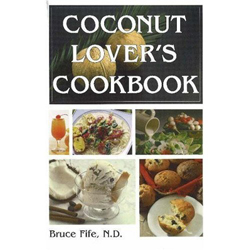
Saturated Fats are Where it’s At
Joette Calabrese, HMC, CCH, RSHom(Na)
I love good food. Even my favorite movies attest to this: Big Night, Chocolat, Julie and Julia. And when it comes to foodstuff, I have a difficult time getting past the low-fat paradigm.
As far as I’m concerned: fat is where it’s at.
Now, not all fats are the same. Think of the distinction between a Dunkin’ Donut doughnut and my Sunday, homemade, buttermilk pancakes blissfully fried in cold pressed virgin coconut oil, and then drenched in maple syrup and raw spring butter. The former choice is fried in months-old soybean or canola oil; the latter is in concert with delectable coconut oil, which has the distinct fragrance of fresh coconuts. Can there be any comparison?
So how do I rationalize the abundance of saturated fats for myself and family? I did my homework and this is what I’ve learned.
The notion that saturated fats cause heart disease is not only facile but just plain wrong. Do you remember the Framingham Heart Study? Well, if not, you ought to know that it’s the mainstay for the low-fat paradigm advocates. Yet, its hypothesis has been turned on its head.
In hindsight, some 40 years after the study became public, the director of the study confessed that “the more saturated fat one ate, the more cholesterol one ate, the more calories one ate, the lower the person’s serum cholesterol… we found that the people who ate the most cholesterol, ate the most saturated fat [and] ate the most calories, weighed the least and were the most physically active.”
Can we deduce that arterial sclerosis has little to do with cholesterol and fat consumption? It certainly appears that we can when we consider those telling words from the director of the lipid theorist’s flagship study.
Interestingly, clogged arteries are not choked with saturated fats, but with calcium deposits akin to lime. This is not what we have imagined all these years.
Instead, we’ve visualized the fats from a fresh, free range, pastured egg fried in extra virgin coconut oil traveling directly from the mouth into the stomach and then straight for the arteries. It simply isn’t so and there’s plenty of evidence to substantiate this.
Irrespective of the repetitive conventional medical mantra and unsound pop culture advice, we can reconsider the last 40 years of fat phobia to be a wash.
If butter, organic, extra virgin coconut oil, cod liver oil, whole milk, tropical and other saturated fats don’t cause heart disease, then what does? We know that deficiencies of vitamins A, E and D are one cause. Where are these vitamins found? Why, in butter, lard, tropical oils and animal fats...the very same foods we’re advised to eschew!
B vitamin and mineral deficiencies are also contributors to heart disease. These occur as a result of eating foods of commerce, such as soda, preservatives, additives and enhancers, instead of whole, homemade fare. Vitamin B happens to be abundant in red meat and in organ meats.
The Benefits of Good Fats in Your Diet
Butter, lard, and tropical fats, such as virgin coconut oil are good fats to eat. Their antioxidants protect us against free radicals and are, therefore, preventatives against diseases such as cancer, heart disease, depression, infections, and reproductive disorders.
Get happy! Ward off hot flashes, heart pathology, allergies, fatigue, memory loss and winter respiratory infections. Eat like a true gourmet; include plentiful amounts of butter, organic virgin coconut oil and fresh milk. Then go outside and take a walk. Your brain, heart, lungs and even your arteries will thank you for a radiant life.
If you yearn to learn, contact Joette Calabrese at HomeopathyWorks.net for a free, 15 minute SKYPE or phone session and find out if homeopathy is a good fit for you and your family’s lifestyle strategy. For a download of our new, printer-friendly First Aid Chart, go to www.homeopathyworks.net and find it in the “Free Downloads and Articles” box. Don’t forget to check out all the information on Joette’s upcoming system designed for moms. Just click Yearn to Learn.

